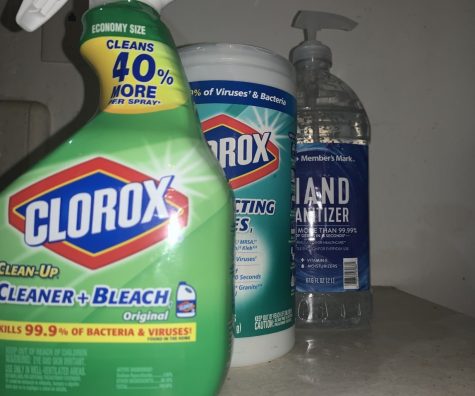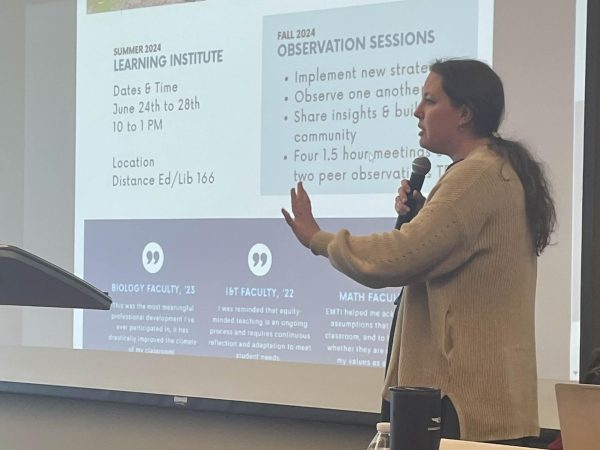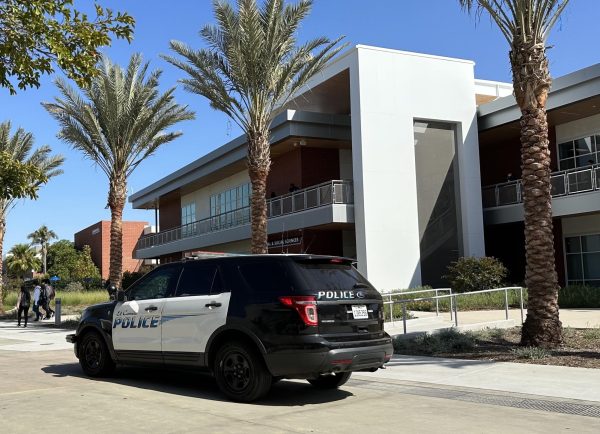Experts provide strategies to avoid getting COVID-19
Because of the novel coronavirus (COVID-19), everyday actions such as cleanliness and social distancing are important steps we can all take to battle this national emergency.
COVID-19, the respiratory illness, first emerged in China in late 2019, according to the Centers for Disease Control and Prevention (CDC).
“Every single one of us has to hold ourselves accountable to make sure we are going to be part of the solution,” Loss Control and Prevention Specialist with the Risk Management Branch of the L.A. County Chief Executive Office Gevork Kazanchyan said.
Kinesiology professor and beach volleyball coach at ECC, Le Valley Pattison said some things that can help prevent getting sick include social distancing, working out and staying home.
The Director of the California Department of Public Health, Sonia Angell, ordered that all individuals living in the state of California ‘stay at home,’ which went into effect March 19, according to the Office of Governor Gavin Newsom.
Essential services that remain available are gas stations, pharmacies, grocery stores, banks, laundromats and essential state and local government functions, such as law offices.
“If any of us are out in public for an essential emergency, keep our social distance of 6 feet and our faces covered, with a mask, bandana or even a scarf, so every single person has some physical barrier that captures anything released from the mouth and the nose,” Kazanchyan said.
According to the CDC, COVID-19 spreads within 6 feet and the practice of social distancing, also known as “physical distance,’ helps to slow the spread of the virus locally and across the country.
“If any of the points of contamination end up on your face, make sure that you don’t rub them into your mouth, nose or your eyes and that you don’t transfer into an area that absorbs the virus and possibly become infected,” Kazanchyan said. “Keeping those portals of entry protected, through not only a physical means but a hygienic means of handwashing with warm water and soap for 20 seconds of lathering to get a really good reduction of microbes on our hands.”
Disinfecting essential items such as keys, wallets, purses, sunglasses and cell phones is ‘ideal’ before going back to “your place of refuge” because one is likely to have touched something in the general public the virus might have been exposed to, Kazanchyan said.
Alcohol-based wipes or sprays containing at least 70% alcohol can be used to wipe down electronics, remote controls, keyboards, and other essential items, according to the CDC.
“Groceries being separate, [COVID-19] is not a food-borne illness and it hasn’t been shown that it transmits through food. If the container is durable and you feel like the public has touched it, then it can be misted down with Isopropyl alcohol,” Kazanchyan said.
High touch surfaces such as tables, doorknobs, light switches, countertops, faucets and sinks should be disinfected frequently. An EPA-registered household disinfectant is recommended or a bleach solution can be made at home with 5 tablespoons (1/3rd cup) bleach per gallon of water, according to the CDC.
Disinfectants that meet the Environmental Protection Agency (EPA) requirements are Opti-Cide 3® Wipes, S&S Sanitizer, Windex Disinfectant Cleaner and more products that can be found on EPA’s official website.

“Be safe, wash your hands, keep a physical, but not a ‘social’ distance,” Professor of Clinical Preventive Medicine at the University of Southern California, Edward Avol said. “Especially at this time, we need to be in social contact with our friends and family so no one feels isolated – use email, tweets, texting, phone calls, Zoom, FaceTime, whatever, but let each other know you are thinking of them.”






